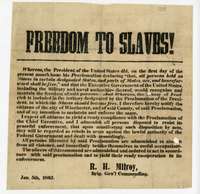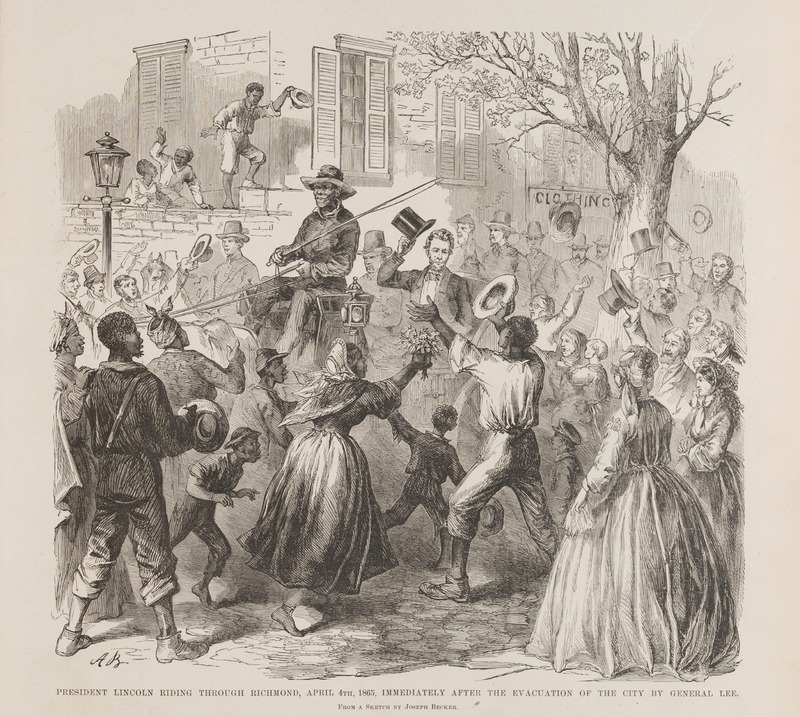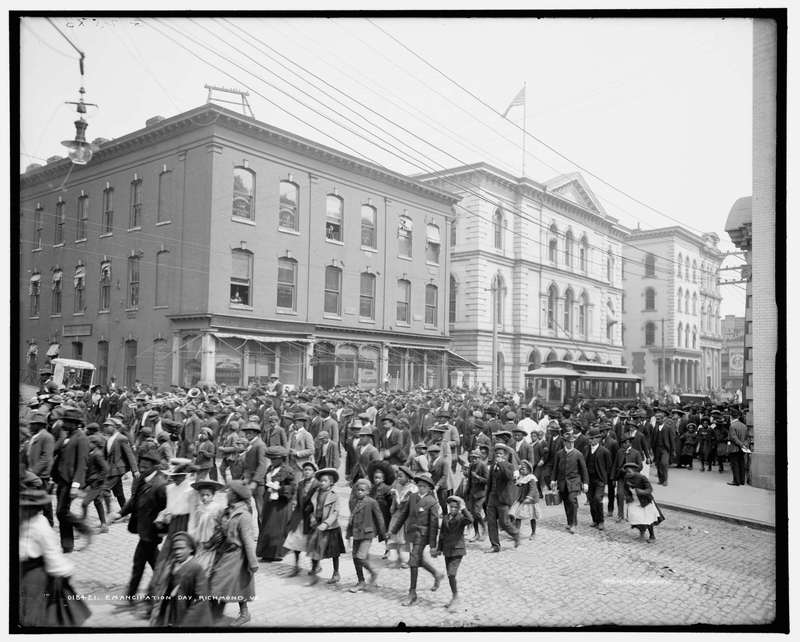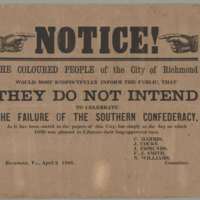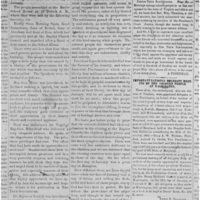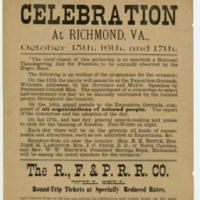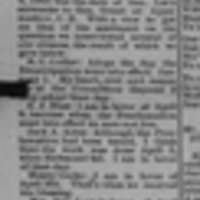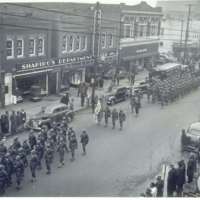Celebrations
Enslaved Virginians gained their freedom at different times depending on their circumstances. Whether they left their owners or were freed as a result of the Emancipation Proclamation, Virginia's 1864 constitution abolishing slavery, or the end of the Civil War, African Americans celebrated emancipation at various times in Virginia and throughout the South as a reflection of when they truly believed themselves to be free.
Freedpeople began celebrating the abolition of slavery as soon as possible, and such celebrations were popular events in many Virginia communities. People in different areas celebrated on different days. In the capital city of Richmond, freedom arrived on April 3, 1865, after the Confederate and state government officials abandoned the city and parts of its business district burned. When President Abraham Lincoln toured the city the next day, thousands of cheering African Americans greeted him and escorted him through Richmond. In Hampton on January 1, 1866, the third anniversary of the Emancipation Proclamation, emancipation celebration participants resolved that "the first day of January will be set apart until time shall be no more; when this people will be gathered to Abraham's bosom to join the triumphant throng, in songs of praise to the God that brought them out of bondage forever and ever." In April 1866, Richmond African Americans hoped to calm fears of white Virginians by stressing that they were celebrating their freedom, not the fall of the Confederacy.
African Americans in Loudoun County, the town of Warrenton, and other communities celebrated emancipation on September 22, the date in 1862 when Lincoln signed the preliminary Emancipation Proclamation. In later years, some Richmond African Americans and others in smaller towns like Emporia, Clifton Forge, and Boydton, celebrated on another contentious date, April 9, when the Confederate army surrendered at Appomattox. Seeking to establish a self-defined "National Thanksgiving Day for Freedom," Richmond African Americans sponsored a three-day Colored People's Celebration in October 1890. Officials of the Richmond, Fredericksburg, and Potomac Railroad Company offered reduced prices on train tickets for people who attended. The event included a parade, fireworks, and prominent speakers such as John Mercer Langson, who had recently been seated in the U.S. House of Representatives as Virginia's first African American congressman.
The Richmond celebration in 1905 marked the fortieth anniversary of the end of slavery. Ten years later, on the fiftieth anniversary, one of the last large commemorations in Virginia took place. On December 31, 1944, the 3166th Quartermaster Service Company color guard and the 3167th Quarter Master Service Company, of Camp Hill, staged a parade in Newport News on the eve of the eighty-first anniversary of the Emancipation Proclamation. The Loudoun County Emancipation Association continued to hold annual celebrations of the end of slavery at its fairgrounds into the second half of the twentieth century.
The celebration known as Juneteenth has grown into a popular event across the country to commemorate emancipation from slavery and celebrate African American culture. Juneteenth refers to June 19, the date in 1865 when the U.S. Army arrived in Galveston, Texas, and announced that the Civil War was over and that slaves were free under the Emancipation Proclamation. Freedmen in Texas adopted June 19, later known colloquially as Juneteenth, as the date they celebrated emancipation. Juneteenth celebrations continued into the twentieth century, survived a period of declining participation because of the Great Depression and World War II, and revived during the 1950s and 1960s for publicizing civil rights issues of the day. In 1980 the Texas state legislature established June 19 as a state holiday. In the 1990s Juneteenth spread to other parts of the country, including Virginia. Inspired by an event at the Smithsonian Institution's Anacostia Community Museum in 1992, cities and towns throughout Virginia held yearly Juneteenth celebrations by the end of that decade. In a 2007 resolution, the Virginia House of Delegates recognized June 19 as "Juneteenth Freedom Day" in the state.
